|
Grandma's Vitamin Deficiency Guide
|
 | 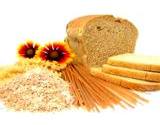 | 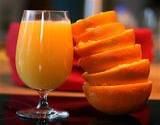 |
Every cell in the body relies on a sufficient supply of vitamins to do its metabolic work. In this way, vitamins perform many functions. Among other things, they promote blood formation and healthy skin, hair and vision; they help to maintain nerves and muscles; and they aid in the release of energy from foods.
Recent research suggests that some vitamins can even help prevent certain disorders, such as cancer, cataracts, arthritis and heart disease.
Most vitamins must be obtained from foods or supplements because the body cannot produce them. Vitamin deficiencies are common in many groups of people:
- dieters
- pregnant or nursing women
- the elderly
- people under stress
- those taking medications, such as cortisone or antibiotics
- people using cigarettes, coffee, alcohol and birth control pills
All the above rob the body of vitamins. The first signs of a vitamin deficiency are fatigue, irritability and anxiety. Over time, the immune system will weaken.
For a complete list of vitamins, minerals, and suppliments see Grandma's Herbal Remedies Vitamin List.
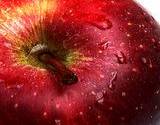 | 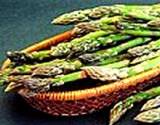 | 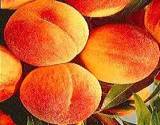 |
Vitamin Deficiency and
What You Can Do Now!
Start now by eating green, yellow and orange fruits and vegetables, along with organic wheat, beans, herbal teas and seasoning, meats, cheese, yogurt and milk can bring your body into balance. Keeping a balanced diet isn't that complicated, just remember to pay attention to what you're eating, it's that simple!
Know Your Vitamins:
Fat-soluble vitamins
Fat-soluble vitamins are stored in the body for use as needed. To increase their absorption, cook with olive oil. For instance:
Vitamin A - Just 1 medium Carrot (5,000 IU) will give your heart and skin a healthy boost.
Vitamin B - A 3 ½ ounce Avocado (400 IU) will enhance your bone formation.
Vitamin E - 1 tablespoon of Wheat Germ Oil (30 IU) will provide cell protection.
Vitamin K - ¼ cup of parsley (80 mcg) will increase blood circulation.
Water-soluble vitamins
Water-soluble vitamins are not stored by the body. Therefore, you must strive to meet daily recommendations:
Vitamin B6 - 2 large Bananas (2 mg.) will strengthen the nerves.
Vitamin B12 - 3 ½ ounces of Salmon (3 mcg.) this vitamin's function is to provide healthy red blood cells.
Vitamin C - 2 cups of fresh Raspberries (60 mg.) strengthen the immune system, provide wound healing and cell protection.
Folic Acid - 2 cups of Asparagus (400 mcg.) provides cell formation, fights heart disease and birth defects.
Niacin - 5 ounces of Chicken Breast (20 mg.) provides energy and strengthens metabolism.
Pantothenic Acid - 10 cups of Skim Milk (10 mg.) provides a healthy nervous system.
Riboflavin - 3 cups of Nonfat Yogurt (1.7 mg.) fights fatigue.
Thiamin - 5 oz. Pork Loin (1.5 mg.) Strengthens muscles, heart and nerves.
As you can see avoiding vitamin deficiency is as simple as eating healthy fresh food on a daily basis.
Here is a little tip to remember: Cigarette smoke destroys vitamin C in the body, so smokers need 100 mg. A day. A cup of orange juice supplies this amount.
Another little tip: Excessive coffee drinking can led to vitamin deficiencies.
Antioxidant Power Beta-carotene (found in dark green vegetables and orange fruits and vegetables) vitamin C (found in citrus fruits and broccoli) and vitamin E (found in nuts, vegetables oils and dark leafy greens) are all natural antioxidants. These substances help neutralize free radicals, which in turn help prevent accelerated aging and fight disease, such as cancer and heart disease.
Multivitamin Preparations: Although it is not a substitute for a healthy diet, a multivitamin that supplies no more than the Reference Daily Intake (above) for each nutrient can provide extra insurance. Except for Vitamin E, which may be safely taken in dosages up to 400 IU by people not using anticoagulant drugs, taking supplements of individual vitamin is generally not a good idea, because sometimes very high doses are harmful.
Avoid Vitamin Deficiency with
Vitamin Rich Cocktail Recipes
Raw fruits and vegetable are the best sources of vitamins, and drinking fresh juices made from them is a delicious way to take advantage of their nutritional power. Use a juicer to make the following fruit and vegetable cocktails.
To Boost Immune System
- 2 carrots
- 1/2 lemon
- 1 stalk celery
- 1/2 red beet
- 1 handful of wheatgrass
To Guard Against Cancer
- 3 carrots
- 1/2 apple
- 1 handful of fresh broccoli florets
To Renew Cells and Fight the Aging Process
- 3 carrots
- 1 handful of fresh spinach
- 1 orange
- 1 teaspoon of olive oil
To Improve Vision
- 1 apple
- 1 kiwifruit
- 1 handful mache
- 1 teaspoon olive oil
Preserving Vitamins
Overcooking, light, air and long storage diminish the vitamin content of fruits and vegetables.
To Minimize Vitamin Loss
- Buy locally grown produce
- Choose frozen fruits and vegetables over canned; they're more nutritious.
- Wash and cut produce just before serving; don't buy precut fruits and vegetables.
- Select organic fruit, and eat the skins of pears and apples.
- Steam fresh vegetable, rather than boiling them.
|
|
DISCLAIMER:
The statement's made here have not been approved by the Food and Drug Administration. These statements are not intended to diagnose, treat or cure or prevent any disease. This notice is required by the Federal Food, Drug and Cosmetic Act.
Return from Vitamin Deficiency Guide to Grandma's Ailments and Treatments Guide
Return to Grandma's Wisdom Home





